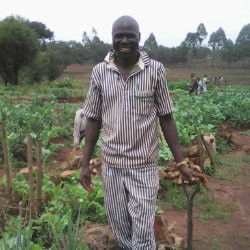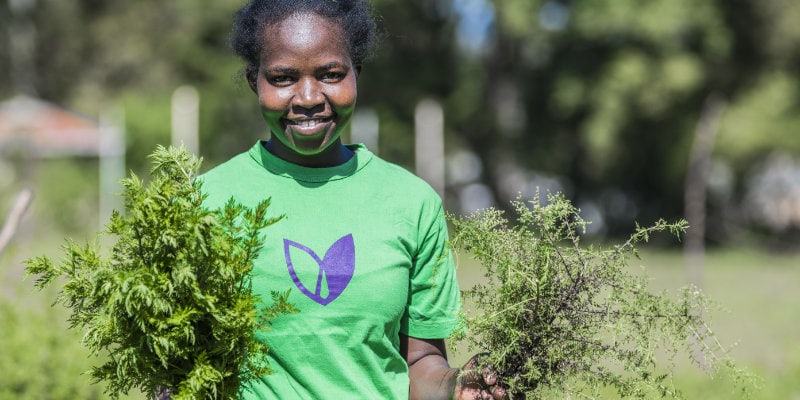The majority of unsolved problems in our world today can be blamed for the lack of political will. We put the blame on the government and they often are unresponsive. As problems are not being solved, we should put our focus in a different direction.
Perhaps a solution to all problems should involve “people will” rather than “political will.” Getting people involved in problem-solving is feasible in our world today as ¾ of the world is connected through the internet. Together we can discover solutions and take action.
Will This Decline Continue?
Here’s a major problem that we are focusing on. In 2015, 212 million cases of malaria were reported. Approximately half a million of those people died from the disease.
April 25 is the world malaria day. On this day we can celebrate the good news that WHO shares. Their reports show that from 2000-2015, the number of people who died from malaria has fallen by 48 percent. We are seeing a decline in one of the earth’s most ancient killers. Even though this is good news, we still have a problem. It is still expected that half a million people will die in the next year and almost a quarter-billion will be seriously set back by this disease.
Poverty = Malaria
Sonia Shah is a medical historian. In her Ted Talk, she mentioned that poverty enables malaria. She lists the facts of poverty as poor housing, lack of electricity, standing water as well as limited access to medical centers.
Sonia believes that ending extreme poverty will involve stopping malaria. Although this will not be a cheap, easy or fast process.
Band Aids
Currently, governments and charities provide malaria band-aids like bed nets and mosquito spray which do little to solve this global issue. Additionally, fluctuating global markets tell us that guarantees for high funded projects are not possible. Therefore, finding enough finances to solve this problem is not going to happen.
So what hope do we have? Is there a now solution for this killing disease?
Our NOW Solution
At Thrive, we believe that our Artemisia Annu program is the answer. Looking to science first, we learned that Artemisia is an anti-parasite.
This means that it is very effective at preventing and even treating malaria. As well, this plant becomes even more effective when combined with healthy nutrition.
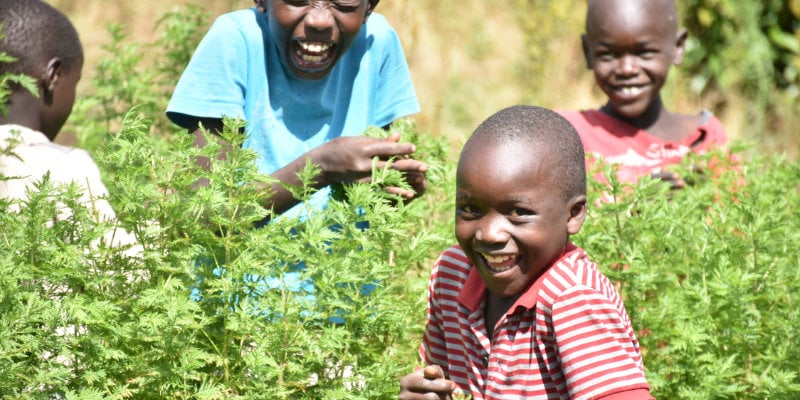
Artemisia Annu for Malaria
Being an easy plant to grow, it can bring health to many. It can be dried to preserve and added to hot water to make our disease-fighting artemisia tea. This tea is beneficial to those who have malaria as well as those with HIV. People with HIV often take a litre of artemisia tea to deal with several health challenges.
Another problem has arisen as medical experts are now concerned with malaria becoming drug-resistant. Our artemisia solution doesn’t present this concern as its leaves contain thousands of plant chemicals that all boost one’s immunity.
We now have a solution. All we need is people who care and who will pass on this good news.
Do we have to wait until poverty is stopped in order to end malaria? In many of our projects where artemisia tea is taken daily, malaria is the exception rather than the rule. Members still have many poverty-related issues, but they are glad to be rid of malaria.
Let’s make malaria day a thing of the past.
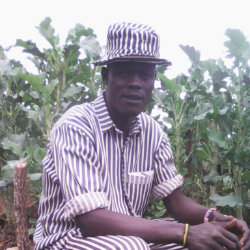
I’m Charles Amotoga. Previously, I experienced a lot of pain, a heavy body, loss of appetite, sleepless nights and malaria several times. I am also HIV positive. Since I enrolled in Thrive’s training and started taking natural medicine daily, I am totally different. I have been feeling better and better every day. Thank you Thrive!
This woman’s family has suffered from malaria, cholera, pneumonia, diarrhea and serious fevers – to name a few. After her daughter, Truphena, attended Thrive’s one-month seminar, their family started growing health daily. They have become disease-free for many years now! They are very thankful for what Thrive has taught them and how their lives have been transformed.
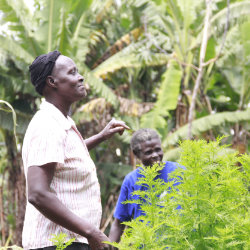
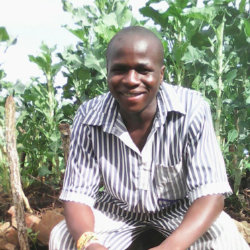
I’m Anthony Wekesa. Before attending the Growing Health Seminar (GHS), I had malaria and was taking medication from the hospital. During the GHS I learned about the benefits of herbal tea and started drinking it daily. Now I no longer need to take medication as the plant artemisia is healing me. I love growing artemisia and lemongrass. I will continue to drink herbal tea and will encourage others to do so too.
My name is John Namasaka. Thrive has taught me about natural medicine which includes artemisia, moringa and greens. Before taking Thrive’s training I experienced body weakness, coldness, loss of appetite, and was weighed down by malaria several times. Since eating healthy and drinking herbal teas I have not experienced any of those awful sicknesses. I believe that everyone should eat healthily and drink herbal tea all the time. Even when I am released I will practice what I learned at home.
